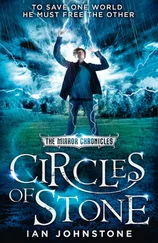But what had made this day quite unbearable was that he had been subjected to a long and heated encounter with Herr Veeglum, his oldest client. The problem arose because the undertaker claimed that he had embalmed two more dead bodies than appeared in the accounts. Tate had pointed out that this was quite impossible. Veeglum had replied that one does not imagine embalming one corpse, let alone two, as it is a very vivid affair. The conversation had become increasingly strained until, with some irritation, Tate had suggested that perhaps Veeglum had inhaled too much embalming fluid.
And so the meeting had ended on a very sour note.
This was his dark mood as he sat back in his old office chair, large hands clasped behind his head and eyes fixed intently on the dripping windowpane. At that moment there came a soft knock on one of his two doors: the one that opened into the corridor.
Tate expelled all the air from his lungs in a blast of exasperation. He closed his eyes as though to shut out whatever it was that threatened to intrude, but only a moment passed before he heard the knock again.
Sweat pricked his brow.
“What is it?” he barked.
There was a brief silence. “Uncle, it’s me,” came the reply. “Can I come in?”
Tate’s shoulders and head slumped into a stoop of depression. “That door’s for customers,” he sighed. “Come through the apartment!”
There was a brief pause as Sylas obediently let himself into the apartment via the next door along the corridor and made his way across the kitchen and finally tapped on the other door to the office. It was a rule that made so little sense that he never remembered it.
“Yes! Yes!” snapped his uncle. “Come IN already!”
The door opened and Sylas slid into the room. It was clear at once that something was wrong. He was drenched from head to foot: his hair plastered to his face, his clothes baggy and misshapen. As he stood staring up at the darkening face of his uncle, drops of water fell around his feet.
Tate lunged for some papers that lay just inches from the gathering pool. “You’re raining on my documents! Back! Back!”
He pushed Sylas to the wall in an attempt to contain the damage. Sylas waited with a look of resignation until the floor around him had been cleared and his uncle had removed his bony hand from his chest.
“So? What do you want?” demanded Tate, still caressing one of the stacks of ledgers.
“Well,” began Sylas, slowly bringing his eyes up to meet his uncle’s. He swallowed hard. “It’s just that…” He drew a breath and squeezed his eyes closed. “I’m very sorry, but I missed the post.”
Time stood still.
Tobias Tate stared at Sylas without changing his expression and Sylas winced, waiting for the inevitable explosion. The first sign of the impending storm came when his uncle’s face began to twitch in an alarming manner, pulling his features into entirely new and unbecoming shapes. Then his right eyelid closed and his head began jerking to one side as if gesturing to something outside the window. Sylas knew better than to look. He pressed himself back against the wall and braced himself.
“You…” Tobias Tate swallowed hard and took a deep breath. “You fool! Idiot! Imbecile! Are you some kind of vegetable? Is there… How…”
There was a pause while he gathered himself. He clutched a spike of his hair and pulled at it until Sylas thought it might come clean out, then marched away towards his desk, turned and began pacing up and down, muttering to himself.
“Never have I… never… such incompetence… fool… moron…” and so on, and so on, until Sylas wondered if he might be able to slip away without being noticed. But suddenly his uncle whirled about, marched up to Sylas and thrust his face squarely into his.
“What were you doing instead of posting my mail?” he snarled, raising one eyebrow.
“I – I went into the new shop, the Shop of Things,” ventured Sylas. “And uncle, it was so wonderful, so magical... I saw such amazing Things that I just lost track of the time…”
“Shut up!” roared Tobias Tate. “SHUT UP! You dare to make excuses when you have shown absolute disregard for the trust I placed in you? When you have possibly cost me my good name with valuable clients? When you have quite probably cost me…” he paused to emphasise the scandal of this final crime, “…MONEY!”
“I know, it was stupid and I’m really very sorry, uncle, but…”
“But? BUT? No buts! You must say nothing further to me! You – must – not – speak!” He banged the wall as he spat out each word. “You’re as bad as your mother! A dreamer – a careless, foolish, deluded—”
“Leave her out of this!”
Tobias Tate stood up to his full height and an amused sneer passed across his face. He crossed his arms and scowled down at the boy for some moments before he spoke.
“I always knew you were an insolent, wilful child, for all your ‘yes sirs’ and ‘no sirs’ and ‘pleases’ and ‘thank yous’. You need to be taken in hand before you turn out like her. Yes, that’s right – firmly in hand!”
Sylas set his jaw. “I WANT to turn out like her!”
“Oh, really? You want to be mad?”
Sylas reeled back against the wall, his eyes burning with tears. He wanted to say something – scream something – but words escaped him.
“Thought not!” shouted his uncle, marching to his chair. “Back to your room. You will not leave that room until seven o’clock, when you will come down, prepare dinner and help me with my files. Now, give me the letters and go.” He fixed Sylas with a glare. “Go!”
Sylas felt a surge of rage. He rummaged in his bag, found the letters and threw them on the floor, then let himself out of the office. He slammed the door of the kitchen beyond, stormed out into the corridor and clattered up the dark staircase to his room.
As the trapdoor fell closed, he dropped his rucksack and turned to the faded photograph of his mother, reaching out and touching the glass. Tears streamed down his face, but he did not sob or wipe them away. They were the silent tears of one who had shed them before, and who knew they did no good.
His uncle’s cruel face surged into his mind and his snarling voice echoed in his ears:
“…as bad as your mother… deluded… mad…”
He flinched at the dark, cruel significance of these words.
It had been five long, lonely years since he had last seen his mother. Or at least since he saw her as he liked to think of her: her tender face, slightly old for her years; her long dark hair drawn back in a ponytail, which he used to play with as she worked in their small front room, her delicate hands tapping on her computer or scribbling formulae in her many laboratory notebooks. He could hardly remember her soft, soothing voice, which had always been the last sound he heard at night and the first he heard in the morning.
That part of his life was now only a distant memory.
Everything had changed the day he had watched them take her away. He had looked on helplessly as she scratched and clawed at them as though battling for her life – and although he would never have believed it, that was exactly what she was doing. He remembered the man with the large thick glasses and the too-cheerful smile.
The one with the needle.
He could still see the stout, sallow-skinned woman whose beady eyes took in the whole room, peering into their life until nothing was private any more. But he remembered no sounds. He knew that his throat was sore afterwards, he assumed from screaming, and he remembered his mother’s face contorting as though she was crying out – but his memories of that day were like an old silent movie: white faces speaking but making no sound, their movements jerky and unnatural, everything depicted in shades of silver and grey. And he struggled to see past that movie into the rich colour of the life he had had before, when it was just the two of them. Somehow that day had made that vivid life seem unreal, like a precious dream that dissolves in the hard, cold light of day.
Читать дальше

![Жаклин Уилсон - Между мирами[Between Worlds]](/books/79611/zhaklin-uilson-mezhdu-mirami-between-worlds-thumb.webp)










